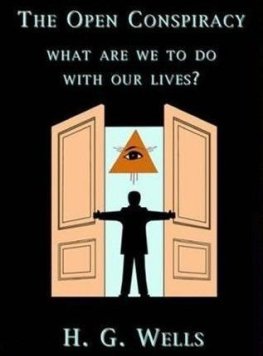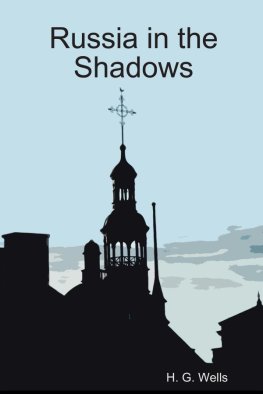Herbert Wells - The Wonderful Visit
Here you can read online Herbert Wells - The Wonderful Visit full text of the book (entire story) in english for free. Download pdf and epub, get meaning, cover and reviews about this ebook. genre: Romance novel. Description of the work, (preface) as well as reviews are available. Best literature library LitArk.com created for fans of good reading and offers a wide selection of genres:
Romance novel
Science fiction
Adventure
Detective
Science
History
Home and family
Prose
Art
Politics
Computer
Non-fiction
Religion
Business
Children
Humor
Choose a favorite category and find really read worthwhile books. Enjoy immersion in the world of imagination, feel the emotions of the characters or learn something new for yourself, make an fascinating discovery.

- Book:The Wonderful Visit
- Author:
- Genre:
- Rating:4 / 5
- Favourites:Add to favourites
- Your mark:
- 80
- 1
- 2
- 3
- 4
- 5
The Wonderful Visit: summary, description and annotation
We offer to read an annotation, description, summary or preface (depends on what the author of the book "The Wonderful Visit" wrote himself). If you haven't found the necessary information about the book — write in the comments, we will try to find it.
The Wonderful Visit — read online for free the complete book (whole text) full work
Below is the text of the book, divided by pages. System saving the place of the last page read, allows you to conveniently read the book "The Wonderful Visit" online for free, without having to search again every time where you left off. Put a bookmark, and you can go to the page where you finished reading at any time.
Font size:
Interval:
Bookmark:
The Wonderful Visit
by H. G. Wells
The Night of the Strange Bird.
I.
On the Night of the Strange Bird, many people at Sidderton (and some nearer) saw a Glare on the Sidderford moor. But no one in Sidderford saw it, for most of Sidderford was abed.
All day the wind had been rising, so that the larks on the moor chirruped fitfully near the ground, or rose only to be driven like leaves before the wind. The sun set in a bloody welter of clouds, and the moon was hidden. The glare, they say, was golden like a beam shining out of the sky, not a uniform blaze, but broken all over by curving flashes like the waving of swords. It lasted but a moment and left the night dark and obscure. There were letters about it in Nature, and a rough drawing that no one thought very like. (You may see it for yourselfthe drawing that was unlike the glareon page 42 of Vol. cclx. of that publication.)
None in Sidderford saw the light, but Annie, Hooker Durgan's wife, was lying awake, and she saw the reflection of ita flickering tongue of golddancing on the wall.
She, too, was one of those who heard the sound. The others who heard the sound were Lumpy Durgan, the half-wit, and Amory's mother. They said it was a sound like children singing and a throbbing of harp strings, carried on a rush of notes like that which sometimes comes from an organ. It began and ended like the opening and shutting of a door, and before and after they heard nothing but the night wind howling over the moor and the noise of the caves under Sidderford cliff. Amory's mother said she wanted to cry when she heard it, but Lumpy was only sorry he could hear no more.
That is as much as anyone can tell you of the glare upon Sidderford Moor and the alleged music therewith. And whether these had any real connexion with the Strange Bird whose history follows, is more than I can say. But I set it down here for reasons that will be more apparent as the story proceeds.
The Coming of the Strange Bird.
II.
Sandy Bright was coming down the road from Spinner's carrying a side of bacon he had taken in exchange for a clock. He saw nothing of the light but he heard and saw the Strange Bird. He suddenly heard a flapping and a voice like a woman wailing, and being a nervous man and all alone, he was alarmed forthwith, and turning (all a-tremble) saw something large and black against the dim darkness of the cedars up the hill. It seemed to be coming right down upon him, and incontinently he dropped his bacon and set off running, only to fall headlong.
He tried in vainsuch was his state of mindto remember the beginning of the Lord's Prayer. The strange bird flapped over him, something larger than himself, with a vast spread of wings, and, as he thought, black. He screamed and gave himself up for lost. Then it went past him, sailing down the hill, and, soaring over the vicarage, vanished into the hazy valley towards Sidderford.
And Sandy Bright lay upon his stomach there, for ever so long, staring into the darkness after the strange bird. At last he got upon his knees and began to thank Heaven for his merciful deliverance, with his eyes downhill. He went on down into the village, talking aloud and confessing his sins as he went, lest the strange bird should come back. All who heard him thought him drunk. But from that night he was a changed man, and had done with drunkenness and defrauding the revenue by selling silver ornaments without a licence. And the side of bacon lay upon the hillside until the tallyman from Portburdock found it in the morning.
The next who saw the Strange Bird was a solicitor's clerk at Iping Hanger, who was climbing the hill before breakfast, to see the sunrise. Save for a few dissolving wisps of cloud the sky had been blown clear in the night. At first he thought it was an eagle he saw. It was near the zenith, and incredibly remote, a mere bright speck above the pink cirri, and it seemed as if it fluttered and beat itself against the sky, as an imprisoned swallow might do against a window pane. Then down it came into the shadow of the earth, sweeping in a great curve towards Portburdock and round over the Hanger, and so vanishing behind the woods of Siddermorton Park. It seemed larger than a man. Just before it was hidden, the light of the rising sun smote over the edge of the downs and touched its wings, and they flashed with the brightness of flames and the colour of precious stones, and so passed, leaving the witness agape.
A ploughman going to his work, along under the stone wall of Siddermorton Park, saw the Strange Bird flash over him for a moment and vanish among the hazy interstices of the beech trees. But he saw little of the colour of the wings, witnessing only that its legs, which were long, seemed pink and bare like naked flesh, and its body mottled white. It smote like an arrow through the air and was gone.
These were the first three eye-witnesses of the Strange Bird.
Now in these days one does not cower before the devil and one's own sinfulness, or see strange iridiscent wings in the light of dawn, and say nothing of it afterwards. The young solicitor's clerk told his mother and sisters at breakfast, and, afterwards, on his way to the office at Portburdock, spoke of it to the blacksmith of Hammerpond, and spent the morning with his fellow clerks marvelling instead of copying deeds. And Sandy Bright went to talk the matter over with Mr Jekyll, the "Primitive" minister, and the ploughman told old Hugh and afterwards the vicar of Siddermorton.
"They are not an imaginative race about here," said the Vicar of Siddermorton, "I wonder how much of that was true. Barring that he thinks the wings were brown it sounds uncommonly like a Flamingo."
The Hunting of the Strange Bird.
III.
The Vicar of Siddermorton (which is nine miles inland from Siddermouth as the crow flies) was an ornithologist. Some such pursuit, botany, antiquity, folk-lore, is almost inevitable for a single man in his position. He was given to geometry also, propounding occasionally impossible problems in the Educational Times, but ornithology was his forte. He had already added two visitors to the list of occasional British birds. His name was well-known in the columns of the Zoologist (I am afraid it may be forgotten by now, for the world moves apace). And on the day after the coming of the Strange Bird, came first one and then another to confirm the ploughman's story and tell him, not that it had any connection, of the Glare upon Sidderford moor.
Now, the Vicar of Siddermorton had two rivals in his scientific pursuits; Gully of Sidderton, who had actually seen the glare, and who it was sent the drawing to Nature, and Borland the natural history dealer, who kept the marine laboratory at Portburdock. Borland, the Vicar thought, should have stuck to his copepods, but instead he kept a taxidermist, and took advantage of his littoral position to pick up rare sea birds. It was evident to anyone who knew anything of collecting that both these men would be scouring the country after the strange visitant, before twenty-four hours were out.
The Vicar's eye rested on the back of Saunders' British Birds, for he was in his study at the time. Already in two places there was entered: "the only known British specimen was secured by the Rev. K. Hilyer, Vicar of Siddermorton." A third such entry. He doubted if any other collector had that.
He looked at his watchtwo. He had just lunched, and usually he "rested" in the afternoon. He knew it would make him feel very disagreeable if he went out into the hot sunshineboth on the top of his head and generally. Yet Gully perhaps was out, prowling observant. Suppose it was something very good and Gully got it!
Font size:
Interval:
Bookmark:
Similar books «The Wonderful Visit»
Look at similar books to The Wonderful Visit. We have selected literature similar in name and meaning in the hope of providing readers with more options to find new, interesting, not yet read works.
Discussion, reviews of the book The Wonderful Visit and just readers' own opinions. Leave your comments, write what you think about the work, its meaning or the main characters. Specify what exactly you liked and what you didn't like, and why you think so.


